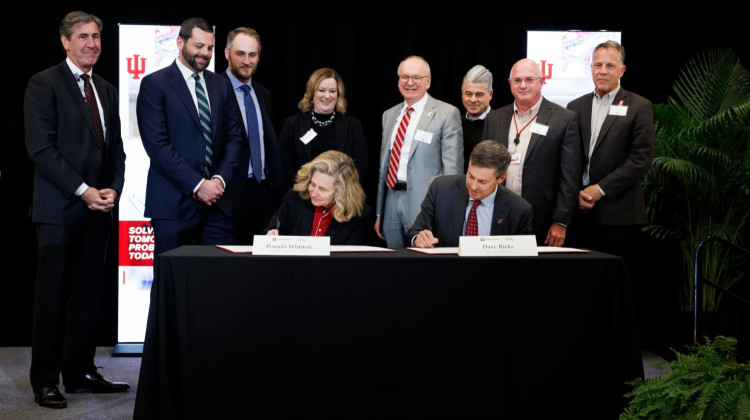
One provider said her appointments now include helping people understand the different types of care they can still access.
Bryancalabro / Wikimedia CommonsSince Indiana's near-total abortion ban went into effect more than a year ago, some reproductive health care providers said they’ve had to adjust the conversations they have with patients about birth control.
Some providers said the few, narrow exceptions under the near-total ban make it difficult to access care, which they said makes knowing which contraceptive options are available is even more important.
Dr. Tracey Wilkinson is the project lead for the Path4You program, which provides free contraception across the state.
Wilkinson said people tend to only become aware of barriers to care when they, or someone they know, tries to access it. Some of her patients don’t know that abortion access has been severely limited in Indiana.
“Despite all of the news coverage and focus around that abortion ban, we still have a lot of members in our community that weren't aware,” Wilkinson said. “The more that we talk about it and the more that we remind people, the better it is just so that awareness is out there.”
Join the conversation and sign up for the Indiana Two-Way. Text "Indiana" to 765-275-1120. Your comments and questions in response to our weekly text help us find the answers you need on statewide issues and the election, including our project Civically, Indiana.
Wilkinson said patients need to understand the state’s abortion ban in order to make informed decisions.
“The added part that I bring into my counseling is that abortion is now banned in our state, so while you're thinking of various options when it comes to pregnancy prevention, please, keep in mind that abortion is no longer legal in our state,” Wilkinson said.
Wilkinson’s appointments now include helping people understand the different types of care they can still access.
“This is no longer a discussion that can be put off for the next visit or is only applied to certain patients or certain gender patients,” Wilkinson said. “It's really, kind of, every moment is crucial.”
The Path4You program launched in 2021 – about a year before Indiana lawmakers passed the state's near-total ban – and has helped more than 2,000 patients. Wilkinson said the providers expected access was easier for short-acting contraceptive options, like oral birth control. But she said they found a lot of patients needed help finding both short- and long-acting options.
“It just really speaks to the barriers to access — to just birth control — that we have,” Wilkinson said. “It doesn't matter what you are trying to get, all of it is hard. And we don't make it easy as a state.”
However since the near-total ban took effect in 2023, Wilkinson said more people are choosing long-acting reversible options compared to before.
Abigail is our health reporter. Contact them at aruhman@wboi.org.
 DONATE
DONATE







 Support WFYI. We can't do it without you.
Support WFYI. We can't do it without you.